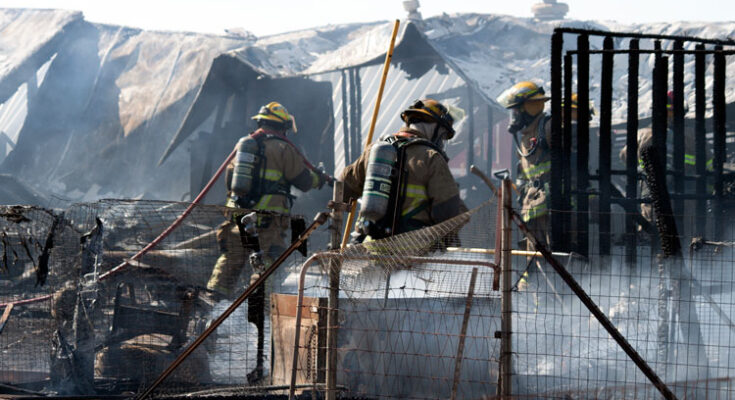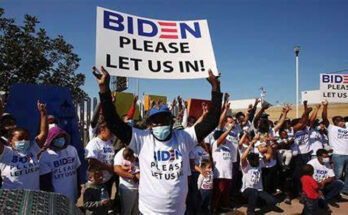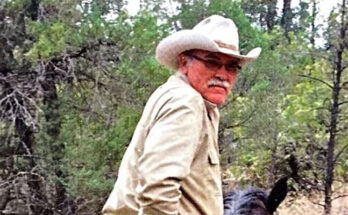Jon Johnson File Photo/Gila Herald
Op-Ed By Jonathan Sharp/Environmental Litigation Group, P.C.
Volunteer firefighters are getting the short end of the stick by not being bypassed by Cancer Presumptive Laws. Even though public safety heavily relies on the service of volunteer firefighters, who comprise almost 70% of the firefighters in our country, they have not been included in Cancer Presumption Laws in more than half of the states in the U.S.
Cancer Presumption Laws recognize firefighters’ cancerous condition as a job-related illness and affirm their eligibility to receive some form of compensation or disability benefit. However, in most states, the law specifies that only employed firefighters’ applications for support are accepted. Arizona is one of such states. On what grounds, though, you might ask, and rightly so.
Most volunteer firefighters do the same tasks, dedicate as many hours, and are exposed to the same hazards as employed firefighters. Firefighting comes with many health risks, such as heat stress and associated cardiovascular disease, accidents, and exposure to various toxic chemicals. Per- and polyfluoroalkyl substances (PFAS) are among the man-made substances posing great danger to firefighters’ health.
What does exposure to the toxic PFAS mean for firefighters?
PFAS are a large group of chemicals that are among the most worrying emerging environmental hazards in the U.S. They are water-soluble, highly mobile, persistent, remain in the environment for an unknown period, and accumulate in living organisms. Exposure to these so-called “forever chemicals” mainly happens through contaminated drinking water, air, and direct exposure, like in the case of firefighters. Long-term exposure to PFAS causes severe diseases such as decreased fertility, weakened immune systems, changes in liver enzymes, increases in cholesterol levels, and various types of cancers.
PFAS can be found in high concentrations in aqueous film-forming foam (AFFF), a class-B firefighting foam widely used by military and civil firefighters since the 1960s. While AFFF is the most effective foam on the market against fuel and other flammable liquid fires, it is exceptionally toxic due to its PFAS components. Arizona state law only prohibits using AFFF for training and testing purposes, while it can still be used in emergency response.
In Arizona, 30.6% of the fire departments are volunteers, and 22.6% are primarily volunteers, meaning that more than half of the firefighters in the state are volunteers. These people are regularly and inevitably exposed to carcinogenic PFAS, not only by being in direct contact with AFFF but also by working in a PFAS-contaminated environment.
The risk of getting sick of cancer is real. A medical study published in 2023 demonstrates that skin, prostate, testicular, brain, nervous system, rectal cancers, and non-Hodgkin lymphoma are significantly higher among firefighters than among the general population. Another study published in 2020 by the National Institute for Occupational Safety and Health, Cincinnati, showed an elevated mortality rate from all cancers among firefighters, while a public health study from 2021, focusing exclusively on volunteer firefighters’ PFAS exposure, concluded that they have higher PFAS levels in their organisms compared to the general population.
Need for policy reconsiderations
All firefighters in Arizona put their lives on the line every day. Among the many long-term occupational hazards, toxic chemicals are at the top of the list. Although Arizona’s volunteer firefighters work with carcinogenic substances for years, they do not receive any compensation or disability benefits in case they develop cancer due to toxic exposure while on duty.
Public safety dramatically depends on the sacrifices and dedication of volunteer firefighters. Unfortunately, however, the number of volunteer firefighters decreases across the country. The challenges the fire emergency services face have severe implications for the safety of citizens. The problem could be managed by introducing more inclusionary and protective policies for volunteer firefighters. However, the dire situation is that laws, such as the Cancer Presumption Law, make it unattractive to continue or to start volunteering as a firefighter.
Cancer does not differentiate between volunteers or employed staff. Fighting cancer requires a lot of strength and has substantial financial implications most people are hardly able to cover without support. Volunteer firefighters put their lives in danger for the public good, and it is time for them to receive the same treatment and state benefits as career firefighters.
About the Author
Jonathan Sharp is a Chief Financial Officer at the Environmental Litigation Group, P.C., based in Birmingham, Alabama. The firm offers assistance to victims of toxic exposure, primarily civilian and military firefighters.
Jonathan is mainly responsible for case evaluation, financial analysis, and asset management.










